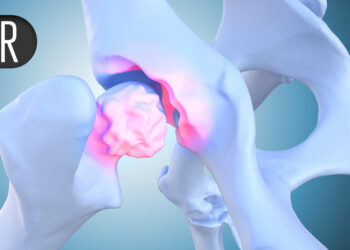TOPLINE:
A telephone-based weight-loss intervention led to clinically significant weight loss in women with stage II/III breast cancer and overweight or obesity, according to a 1-year analysis of a phase 3 study. Although effective across all demographic and racial/ethnic subgroups, the intervention was more effective in postmenopausal and non-Black/non-Hispanic participants.
METHODOLOGY:
- Obesity is associated with increased risks for recurrence, mortality, comorbidities, and poor quality of life in patients with breast cancer. Prior weight-loss studies were small, included mostly non-Hispanic White patients, and used in-person formats that may not be applicable to a broader population.
- Researchers conducted a secondary analysis of a phase 3 clinical trial (BWEL) involving 3180 women (mean age, 53.4 years) with stage II/III human epidermal growth factor receptor-negative breast cancer and a BMI ≥ 27 who were randomly assigned 1:1 to receive either a 2-year telephone-based weight-loss intervention (n = 1591) plus standard health education materials or health education materials alone (n = 1589; control group).
- The weight loss intervention promoted weight loss through caloric restriction (1200-1800 kcal/d based on baseline body weight) and increased physical activity (150 min/wk during the first 6 months, increasing to 225 min/wk thereafter).
- The primary endpoint for this prespecified secondary analysis was weight change at 1 year.
TAKEAWAY:
- At 1 year, participants in the intervention group achieved a mean weight loss of 4.3 kg, equivalent to 4.7% of baseline body weight, whereas those in the control group gained a mean of 0.9 kg or 1.0% of baseline body weight (mean between-group difference, 5.3 kg; P < .001).
- At 1 year, 46.5% of participants in the intervention group achieved a clinically significant weight loss of at least 5% of baseline weight compared with 14.3% in the control group (P < .001); similarly, 22.5% in the intervention group and 5.0% in the control group lost 10% of baseline body weight (P < .001).
- Subgroup analyses showed greater weight loss among postmenopausal women (mean difference, 6.37%) than among premenopausal women (mean difference, 4.82%), and less weight loss among Black and Hispanic participants than among participants of other racial and ethnic groups (mean differences, 3.74% and 4.14%, respectively, vs 6.11%).
- Participants in the weight loss intervention completed a median of 26 out of 30 planned coaching calls during the first year, and weight loss was positively correlated with the number of calls completed (correlation coefficient, 0.57; P = .02); premenopausal women participated in fewer calls than postmenopausal women (median, 25 vs 26; P < .001), and Black and Hispanic women participated in fewer calls than those of other racial and ethnic groups (median, 23 and 22 vs 26; P < .001).
IN PRACTICE:
These findings “demonstrate the feasibility of implementing a lifestyle based WLI [weight loss intervention] as a part of breast cancer treatment,” the study authors concluded.
“While BWEL showed successful weight loss on average, it is not clear if the amount achieved will be sufficient to produce meaningful improvement in prognosis,” Anne McTiernan, MD, PhD, University of Washington, Seattle, wrote in an accompanying editorial, further adding that “trials of weight loss treatments that produce greater degrees of weight loss are also needed in patients with breast cancer, both to determine risk-benefit ratios and to provide treatment options for this population.”
SOURCE:
The study, led by Jennifer A. Ligibel, MD, Dana-Farber Cancer Institute in Boston, was published online in JAMA Oncology.
LIMITATIONS:
Over 20% had missing 1-year weight data due to pandemic-related virtual visits, disproportionately among younger, Black, hormone receptor-negative, and lower-income participants. Women in the study were participating in the coaching calls during the collection of weight loss data. Detailed diet and activity data were limited to a subset, precluding full behavioral analyses.
DISCLOSURES:
The study was supported by grants from the National Cancer Institute of the National Institutes of Health. Additional support was provided to Ligibel by the Susan G. Komen Foundation, Breast Cancer Research Foundation, and American Cancer Society. Several study authors reported receiving grants or personal fees and having other ties with various sources. Additional disclosures are noted in the original article.
This article was created using several editorial tools, including AI, as part of the process. Human editors reviewed this content before publication.
Source link : https://www.medscape.com/viewarticle/phone-based-program-boosts-weight-loss-breast-cancer-2025a1000m38?src=rss
Author :
Publish date : 2025-08-21 15:00:00
Copyright for syndicated content belongs to the linked Source.









